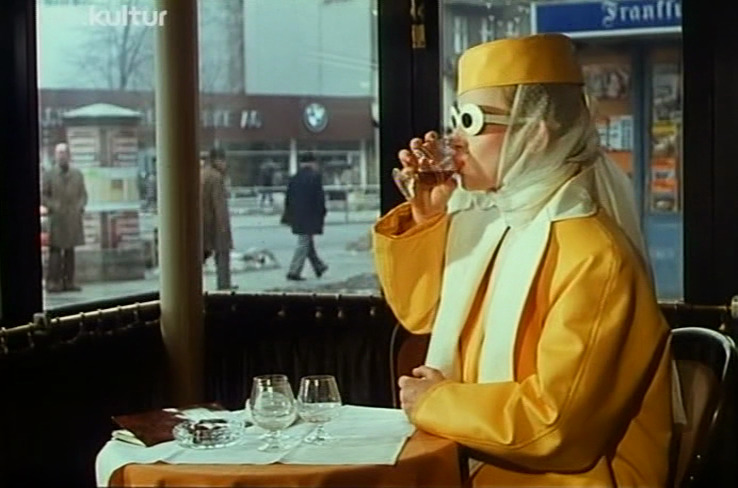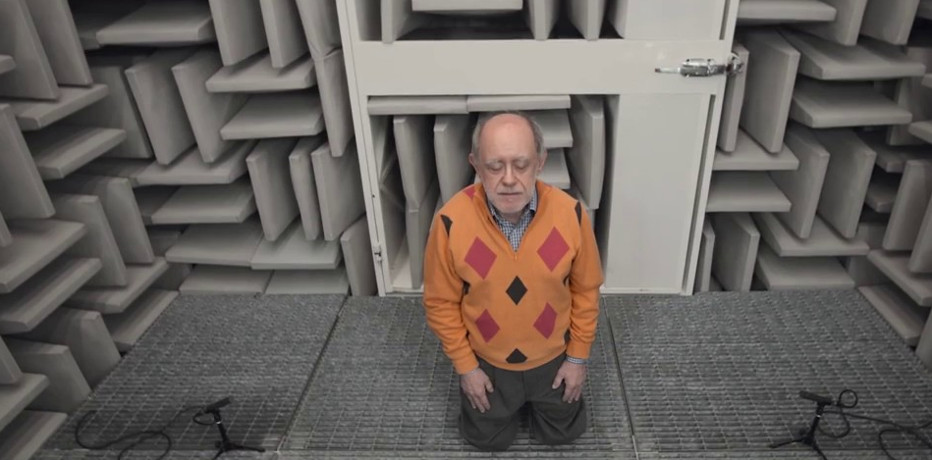|
|
||
|
Pro Tools
FILMFESTIVALS | 24/7 world wide coverageWelcome ! Enjoy the best of both worlds: Film & Festival News, exploring the best of the film festivals community. Launched in 1995, relentlessly connecting films to festivals, documenting and promoting festivals worldwide. Working on an upgrade soon. For collaboration, editorial contributions, or publicity, please send us an email here. User login |
WeAreOne: A Global International Film FestivalAs with other public institutions ranging from the arts to education, the coronavirus pandemic has forced the film festival industry to reorient the delivery of its services. Large established festivals have been forced to cancel or postpone their programs, or search for hybrid solutions, combining restricted public screenings, following local pandemic rules, with digital screenings, frequently aimed at selecting target audiences of distributors and buyers. Some of the smaller niche film festivals have been cancelled outright or are streaming a limited number of the films their festivals programmed. The cost of setting up digital video platforms have been reduced, thereby allowing some small film festivals to replace screenings with streaming. Larger fests tend to offer a mix, though reducing productions shown. Distributors like Marquee and numerous others offer their programs through newly created platforms. For some small festivals, streaming films and panels proved less expensive than rental of physical facilities, hiring part time staff, and arranging receptions. What was striking about the reaction of established film festivals to this new reality was often a response reflecting festival managers uncertain about the next steps to take. They point out the obvious, the need for program innovations, the objective for more diversity and more parity for creative and technical workers , the need to incorporate digital technologies, the goal to reach younger audience groups, and the deletion of old and addition of new sections. Sometimes the forthcoming “normal” festival program could be expressed as a void of originality. Some festival officials clarify that it is too early to discuss specifics of future programs. Their task has become more difficult given the sudden stark financial constraints. Like established art institutions, the larger film festivals have gone through a period of constant expansion over the last decade, setting up new programs, enlarging the staff and adding physical facilities. The Coronavirus pandemic has led to a rude awakening from these prosperous years and greatly enlarged public funds are requested. This February I attended the Berlin Film Festival and European Film Market, probably the last “complete” festival held this year. As in prior editions, the impact of streaming and Netflix were part of most discussions. I have been unable to ascertain what officials plan to do for the 2021 Berlinale though there was some apprehension about how the departure of Dieter Kosslick will impact fundraising. In this context it is startling that though closing its Tribeca Film Institute, Tribeca Enterprises and YouTube organized the WeAreOne: A Global Film Festival Global (WAO) with the guiding hand of its CEO Jane Rosenthal. Run from May 29 – June 7. WAO included more than 100 productions from 21 established film festivals originating in 35 countries. Among the participating film festivals were Tribeca, the NY Film Festival, the Berlinale, Macao, Sydney, Mumbai, Rotterdam, Tokyo, Sundance, Venice, Toronto, Melbourne and Cannes. The creation of WAO served as a logical and obvious response to the worldwide closure of most film festivals. WAO realized a long overdue idea, to program free of charge, through a readily accessible medium the internet, the best productions from international film festivals, and provide the best selections of current and some past long and short form productions as chosen by each festival. They opted for superb works by known and unknown film makers from all continents and introduced an invisible audience to cinematic and socio-political issues. Productions covered themes from the Black Lives Matter movement and environmental and economic changes threatening indigenous communities in Australia as well as new ways of storytelling in completed and works in progress as well as world premieres. What was unique about WAO was the well-organized easy access to all productions for viewers from all corners of the world, without being charged for viewing the films or the numerous curated events. I am sure that this new WAO festival approach will serve as a model for other major festivals dispersing their programs via YouTube or other means locally and globally. After all the expanding use of high-resolution smart television sets that can be wired to streaming platforms helps in the transition to new viewing patterns enlarging as WAO has demonstrated the festival audience. What also needs to be noted is that WAO incorporated fundraising. On a voluntary basis, viewers could directly donate to UNICEF, Doctors Without Borders, local community relief organizations for Covid-19 victims, the World Health Organization and others.
The WAO program covered 42 feature films, 75 shorts, 18 VR and 3 TV productions, 15 panels and 17 special events amounting to 167 offerings placed into the 10-day festival line-up.
Many of the productions selected demonstrated the broad range of the WAO program and innovative approaches of the film makers.
The German TICKET OF NO RETURN production from 1979 entered by the Berlinale did not fare well among its international critiques when first shown but nonetheless, the director Ulrike Ottinger established herself as a provocative innovator of the New German Cinema wave of the seventies. Hidden behind the simple story of a female alcoholic who tries to end her alcoholism with a one-way trip to Berlin are encounters with the straight world and bizarre characters. Identified only as “She” in the film, her eye catching, and stylistic fashion outfits dominate the film’s imagery. But Ottinger offers an incisive analysis of prevailing German mores at that time and a sharp critique of how women are treated if they deviate from the norm decades before such perspectives became popular in Germany. Her biting interpretation emerges despite the constantly changing fashionable cloth She wears. Her exchanges reveal dominant stigmas and contrary views offered by other characters. She is at ease drinking and hanging out with a derelict woman from the streets who accompanies her with a shopping cart to all places they go to no matter how elegant or down scale they are. The audience meets three babbling academic women always dressed gray outfits throughout the story. Posturing as apparent experts on alcoholism they scorn those afflicted with it specifically if they are female. “She” meanders drunk through berlin in an outlandish wardrobe from prior decades but reveals in the little she says more common sense that the three academics
In BEAUTIFULL THINGS, 2017, obtained from the Venice Film Festival, Italian director Giorgio Ferrero documents his critique of consumer society and addiction to things in radically different settings through the accounts of three solitary individuals. Van has been raised in the oil fields of Texas and spends his adult life there handling a waste pit, close to decaying and rusting objects. Eventually, Vito follows him, handling large scale waste disposal units. Danillo is the chief engineer for a large ocean cargo liner inspecting engines and empty spaces and is fascinated by the openness and silence surrounding him. The third individual is Andrea, a scientist who has been submerged in silence for most of his life because he studies the conditions of objects in an anechoic chamber. Such chambers completely absorb reflections of sound and electronic waves, but their complete silence cannot be sustained for more than 45 minutes.
The audience learns that in Europe an individual produces half a ton of trash each year and 30,000 tons of trash must be burned to generate enough electricity for 20,000 people. With few exceptions the images document origin, use and disposition of everyday and industrial objects in the postindustrial consumption society. Though Ferrero is concerned with these men and their relation to objects, time, space, and noise, he also presents images of the restricted social life of these men and the disposable environments surrounding them. There is an apartment full of junk and accumulated things, objects from plastic children’s toys which originated in oil derived material, electronic gadgets, household parts. all items the viewer recognizes again when the trash is compacted and processed by a waste facility. Because of his unusual approach this first documentary by Ferrero prompts reflection.
The Rotterdam festival selected the first feature film by Fredique from Angola, AIR CONDITIONER, produced in 2020 by the film collective Geracao 80 and premiered at WAO. This production breaks filmmaking conventions starting from the guiding concept to the original script and the cinematographic execution with many surreal elements stemming from the concept. What happens in Angola if suddenly most air conditioners are breaking down and fall from the apartments they are lodged in? Everyday life is fractured, relations are frayed, and the social structure becomes transparent. Our principal character Matacedo serves as a guard and janitor in a run-down apartment complex and is tasked to replace a destroyed air conditioner. Other units tumbling down during his work. Government broadcasts try to calm down the population but cannot offer any plausible explanations. The electronic shop keeper whose help is needed turns out to be obsessed with the project of electronically reconstructing the past and memory, sending Matacedo into a telepathic time travel. Accompanying this rapid exploration of the city that leaves little untouched is an impressive jazz like score that was co-written by Fredique.
filmexchange@gmail.com Claus Mueller
01.07.2020 | Claus Mueller's blog Cat. : Air Conditioner Angola Festival Market Georgio Ferrero Global Film Festival Streaming International Film Festival Alternative Ticket of No Return Tribeca YouTube Ulrike Ottinger WeAreOne FESTIVALS
|
LinksThe Bulletin Board > The Bulletin Board Blog Following News Interview with EFM (Berlin) Director
Interview with IFTA Chairman (AFM)
Interview with Cannes Marche du Film Director
Filmfestivals.com dailies live coverage from > Live from India
Useful links for the indies: > Big files transfer
+ SUBSCRIBE to the weekly Newsletter Deals+ Special offers and discounts from filmfestivals.com Selected fun offers
> Bonus Casino
About Claus MuellerThe EditorUser contributions |



























